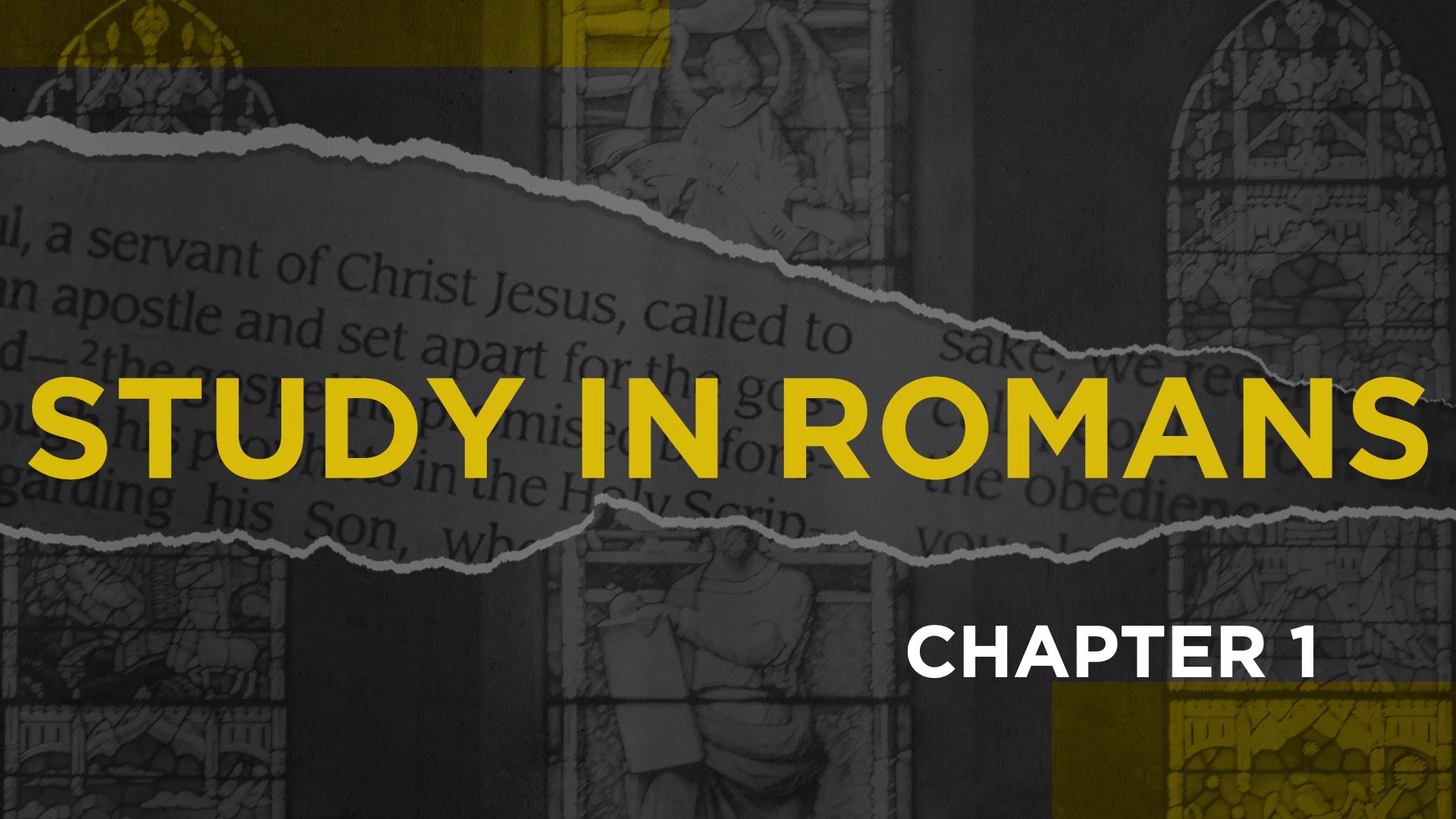In our time teaching through Philippians, the concept of assurance of salvation and the proper response to “work out our salvation” arises in chapter 2. Anthony wanted to share chapter 18 of the Westminster Chatechism to provide some additional scripture and thoughts as we follow Jesus together. See below for the chapter in it’s entirety, and to read the whole catechism, click here.
Chapter 18
Of the Assurance of Grace and Salvation
1. Although hypocrites and other unregenerate men may vainly deceive themselves with false hopes and carnal presumptions of being in the favor of God, and estate of salvationa (which hope of theirs shall perishb): yet such as truly believe in the Lord Jesus, and love him in sincerity, endeavoring to walk in all good conscience before him, may, in this life, be certainly assured that they are in the state of grace,c and may rejoice in the hope of the glory of God, which hope shall never make them ashamed.d
a. Mic. 3:11. The heads thereof judge for reward, and the priests thereof teach for hire, and the prophets thereof divine for money: yet will they lean upon the Lord, and say, Is not the Lord among us? none evil can come upon us. Deut. 29:19. ... and it come to pass, when he heareth the words of this curse, that he bless himself in his heart, saying, I shall have peace, though I walk in the imagination of mine heart, to add drunkenness to thirst. John 8:41. Ye do the deeds of your father. Then said they to him, We be not born of fornication; we have one Father, even God.
b. Amos 9:10. All the sinners of my people shall die by the sword, which say, The evil shall not overtake nor prevent us. Matt. 7:22–23. Many will say to me in that day, Lord, Lord, have we not prophesied in thy name? and in thy name have cast out devils? and in thy name done many wonderful works? And then will I profess unto them, I never knew you: depart from me, ye that work iniquity.
c. 1 John 5:13. These things have I written unto you that believe on the name of the Son of God; that ye may know that ye have eternal life, and that ye may believe on the name of the Son of God. 1 John 2:3. And hereby we do know that we know him, if we keep his commandments. 1 John 3:14, 18–19, 21, 24. We know that we have passed from death unto life, because we love the brethren. He that loveth not his brother abideth in death.... My little children, let us not love in word, neither in tongue; but in deed and in truth.... And hereby we know that we are of the truth, and shall assure our hearts before him.... Beloved, if our heart condemn us not, then have we confidence toward God.... And he that keepeth his commandments dwelleth in him, and he in him. And hereby we know that he abideth in us, by the Spirit which he hath given us.
d. Rom. 5:2, 5. ... by whom also we have access by faith into this grace wherein we stand, and rejoice in hope of the glory of God.... And hope maketh not ashamed; because the love of God is shed abroad in our hearts by the Holy Ghost which is given unto us.
2. This certainty is not a bare conjectural and probable persua- sion grounded upon a fallible hope;e but an infallible assurance of faith founded upon the divine truth of the promises of salvation,f the inward evidence of those graces unto which these promises are made,g the testimony of the Spirit of adoption witnessing with our spirits that we are the children of God,h which Spirit is the earnest of our inheritance, whereby we are sealed to the day of redemption.i
e. Heb. 6:11, 19. And we desire that every one of you do shew the same diligence to the full assurance of hope unto the end.... which hope we have as an anchor of the soul, both sure and stedfast, and which entereth into that within the veil.
f. Heb. 6:17–18. Wherein God, willing more abundantly to shew unto the heirs of promise the immutability of his counsel, confirmed it by an oath: that by two immutable things, in which it was impossible for God to lie, we might have a strong consolation, who have fled for refuge to lay hold upon the hope set before us.
g. 2 Pet. 1:4–11. ... whereby are given unto us exceeding great and precious promises: that by these ye might be partakers of the divine nature, having escaped the corruption that is in the world through lust. And beside this, giving all diligence, add to your faith virtue; and to virtue knowledge; and to knowledge temperance; and to temperance patience; and to patience godliness; and to godliness brotherly kindness; and to brotherly kindness charity. For if these things be in you, and abound, they make you that ye shall neither be barren nor unfruitful in the knowledge of our Lord Jesus Christ. But he that lacketh these things is blind, and cannot see afar off, and hath forgotten that he was purged from his old sins. Wherefore the rather, brethren, give diligence to make your calling and election sure: for if ye do these things, ye shall never fall: for so an entrance shall be ministered unto you abundantly into the everlasting kingdom of our Lord and Saviour Jesus Christ. 1 John 2:3. And hereby we do know that we know him, if we keep his commandments. 1 John 3:14. We know that we have passed from death unto life, because we love the brethren. He that loveth not his brother abideth in death. 2 Cor. 1:12. For our rejoicing is this, the testimony of our conscience, that in simplicity and godly sincerity, not with fleshly wisdom, but by the grace of God, we have had our conversation in the world, and more abundantly to you-ward.
h. Rom. 8:15–16. For ye have not received the spirit of bondage again to fear; but ye have received the Spirit of adoption, whereby we cry, Abba, Father. The Spirit itself beareth witness with our spirit, that we are the children of God.
i. Eph. 1:13–14. ... in whom ye also trusted, after that ye heard the word of truth, the gospel of your salvation: in whom also after that ye believed, ye were sealed with that holy Spirit of promise, which is the earnest of our inheritance until the redemption of the purchased possession, unto the praise of his glory. Eph. 4:30. And grieve not the holy Spirit of God, whereby ye are sealed unto the day of redemp- tion. 2 Cor. 1:21–22. Now he which stablisheth us with you in Christ, and hath anointed us, is God; who hath also sealed us, and given the earnest of the Spirit in our hearts.
3. This infallible assurance doth not so belong to the essence of faith, but that a true believer may wait long, and conflict with many difficulties, before he be partaker of it:k yet, being enabled by the Spirit to know the things which are freely given him of God, he may, without extraordinary revelation, in the right use of ordinary means, attain thereunto.l And therefore it is the duty of everyone to give all diligence to make his calling and election sure,m that thereby his heart may be enlarged in peace and joy in the Holy Ghost, in love and thankfulness to God, and in strength and cheerfulness in the duties of obedience, the proper fruits of this assurance;n so far is it from inclining men to looseness.o
k. 1 John 5:13. These things have I written unto you that believe on the name of the Son of God; that ye may know that ye have eternal life, and that ye may believe on the name of the Son of God.
l. 1 Cor. 2:12. Now we have received, not the spirit of the world, but the spirit which is of God; that we might know the things that are freely given to us of God. 1 John 4:13. Hereby know we that we dwell in him, and he in us, because he hath given us of his Spirit. Heb. 6:11–12. And we desire that every one of you do shew the same diligence to the full assurance of hope unto the end: that ye be not slothful, but followers of them who through faith and patience inherit the promises. Eph. 3:17–18. ... that Christ may dwell in your hearts by faith; that ye, being rooted and grounded in love, may be able to comprehend with all saints what is the breadth, and length, and depth, and height.
m. 2 Pet. 1:10. Wherefore the rather, brethren, give diligence to make your calling and election sure: for if ye do these things, ye shall never fall.
n. Rom. 5:1–2, 5. Therefore being justified by faith, we have peace with God through our Lord Jesus Christ: by whom also we have access by faith into this grace wherein we stand, and rejoice in hope of the glory of God.... And hope maketh not ashamed; because the love of God is shed abroad in our hearts by the Holy Ghost which is given unto us. Rom. 14:17. For the kingdom of God is not meat and drink; but righteousness, and peace, and joy in the Holy Ghost. Rom. 15:13. Now the God of hope fill you with all joy and peace in believing, that ye may abound in hope, through the power of the Holy Ghost. Eph. 1:3–4. Blessed be the God and Father of our Lord Jesus Christ, who hath blessed us with all spiritual blessings in heavenly places in Christ: according as he hath chosen us in him before the foundation of the world, that we should be holy and without blame before him in love. Ps. 4:6–7. There be many that say, Who will shew us any good? Lord, lift thou up the light of thy countenance upon us.... Thou hast put gladness in my heart, more than in the time that their corn and their wine increased. Ps. 119:32. I will run the way of thy commandments, when thou shalt enlarge my heart.
o. 1 John 2:1–2. My little children, these things write I unto you, that ye sin not. And if any man sin, we have an advocate with the Father, Jesus Christ the righteous: and he is the propitiation for our sins: and not for ours only, but also for the sins of the whole world. Rom. 6:1–2. What shall we say then? Shall we continue in sin, that grace may abound? God forbid. How shall we, that are dead to sin, live any longer therein? Titus 2:11–12, 14. For the grace of God that bringeth salvation hath ap- peared to all men, teaching us that, denying ungodliness and worldly lusts, we should live soberly, righteously, and godly, in this present world.... who gave himself for us, that he might redeem us from all iniquity, and purify unto himself a peculiar people, zealous of good works. 2 Cor. 7:1. Having therefore these promises, dearly beloved, let us cleanse ourselves from all filthiness of the flesh and spirit, perfecting holiness in the fear of God. Rom. 8:1, 12. There is therefore now no condemnation to them which are in Christ Jesus, who walk not after the flesh, but after the Spirit.... There- fore, brethren, we are debtors, not to the flesh, to live after the flesh. 1 John 3:2–3. Beloved, now are we the sons of God, and it doth not yet appear what we shall be: but we know that, when he shall appear, we shall be like him; for we shall see him as he is. And every man that hath this hope in him purifieth himself, even as he is pure. Ps. 130:4. But there is forgiveness with thee, that thou mayest be feared. 1 John 1:6–7. If we say that we have fellowship with him, and walk in darkness, we lie, and do not the truth: but if we walk in the light, as he is in the light, we have fellowship one with another, and the blood of Jesus Christ his Son cleanseth us from all sin.
4. True believers may have the assurance of their salvation div- ers ways shaken, diminished, and intermitted; as, by negligence in preserving of it, by falling into some special sin which woundeth the conscience and grieveth the Spirit; by some sudden or vehement temptation, by God’s withdrawing the light of his countenance, and suffering even such as fear him to walk in darkness and to have no light:p yet are they never utterly destitute of that seed of God, and life of faith, that love of Christ and the brethren, that sincerity of heart, and conscience of duty, out of which, by the operation of the Spirit, this assurance may, in due time, be revived;q and by the which, in the meantime, they are supported from utter despair.r
p. Ps. 51:8, 12, 14. Make me to hear joy and gladness; that the bones which thou hast broken may rejoice.... Restore unto me the joy of thy salvation; and uphold me with thy free spirit.... Deliver me from bloodguiltiness, O God, thou God of my salvation: and my tongue shall sing aloud of thy righteousness. Eph. 4:30–31. And grieve not the holy Spirit of God, whereby ye are sealed unto the day of redemption. Let all bitterness, and wrath, and anger, and clamour, and evil speaking, be put away from you, with all malice. Ps. 77:1–10. I cried unto God with my voice, even unto God with my voice; and he gave ear unto me.... Will the Lord cast off for ever? and will he be favourable no more? Is his mercy clean gone for ever? doth his promise fail for evermore? Hath God forgotten to be gracious? hath he in anger shut up his tender mercies? Selah. And I said, This is my infirmity: but I will remember the years of the right hand of the most High. Ps. 31:22. For I said in my haste, I am cut off from before thine eyes: nevertheless thou heardest the voice of my supplications when I cried unto thee. Cf. Matt. 26:69–72 and Luke 22:31–34.
q. 1 John 3:9. Whosoever is born of God doth not commit sin; for his seed remaineth in him: and he cannot sin, because he is born of God. Luke 22:32. But I have prayed for thee, that thy faith fail not: and when thou art converted, strengthen thy brethren. Ps. 51:8, 12. Make me to hear joy and gladness; that the bones which thou hast broken may rejoice.... Restore unto me the joy of thy salvation; and uphold me with thy free spirit. See Ps. 73:15.
r. Mic. 7:7–9. Therefore I will look unto the Lord; I will wait for the God of my salvation: my God will hear me. Rejoice not against me, O mine enemy: when I fall, I shall arise; when I sit in darkness, the Lord shall be a light unto me. I will bear the indignation of the Lord, because I have sinned against him, until he plead my cause






